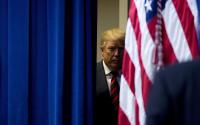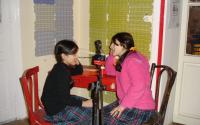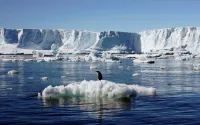2 September 2004The Guardian
For the second time in a week, Vladimir Putin was forced to interrupt his Black Sea holiday yesterday and rush back to Moscow to deal with a horrifying terrorist outrage linked to the crisis in Chechnya.
Like last week's bombing of two Russian passenger airliners, the school hostage siege in North Ossetia caught the Russian president on the hop. It follows closely on the heels of Tuesday's suicide bombing in Moscow and a string of other incidents in Che chnya and Ingushetia.
This dramatic surge in Chechen separatist violence threatens to draw Mr Putin into what could become, in effect, a third Chechen war - with the alarming possibility of a wider Caucasus conflagration.
His predecessor, Boris Yeltsin, miserably failed to suppress Chechen nationalism through military intervention from 1994-96. Three years later, Mr Putin, then prime minister, plunged into a second conflict which he used to boost his presidential credent ials.
Mr Putin declared victory in early 2000 and again in mid-2002 - but like President George Bush, who prematurely announced "mission accomplished" in Iraq, Mr Putin has been repeatedly made to look weak and foolish by the Chechen rebels.
That is a dangerous way to treat the former KGB hard man and judo fan. Even at the best of times, Mr Putin's tolerance for opposition or dissent is limited. If provoked, he hits back. Yet now, despite his hurried return to base, it is unclear what he ca
n do beyond resolving the immediate crisis in North Ossetia. Mr Putin refuses to countenance negotiations in Chechnya; the use of force has demonstrably failed; and his political machinations, including last weekend's bogus presidential election to replace an assassinated pro-Moscow placeman, are counterproductive.
In July, in apparent exasperation, Mr Putin sacked three of Russia's most senior generals, including Anatoly Kvashnin, chief of the general staff, over the setbacks in Chechnya. But this has simply led to the Kremlin being more intimately associated wit h continuing humiliations in the region.
Considered more broadly, the overall authority of a man whose approach to governance is increasingly authoritarian is under challenge on a range of fronts and not just in the Caucasus.
Mr Putin won a second term by a landslide last March, largely by denying media access to rival candidates. His message was that he alone could provide Russians with security and stability after the chaos of the post-Soviet Yeltsin era. Above all, Mr Put
in presents himself as a safe pair of hands.
But there have been several fumbles of late. Terrorism apart, Mr Putin has faced unusually vehement public protests since March over cuts in longstanding social benefits, including housing subsidies, free public transport and prescriptions.
His stated aim of doubling Russia's GDP has begun to look as far-fetched as his claim to have whipped the Chechens. Amid open cabinet bickering, his finance minister, Aleksei Kudrin, complained recently that economic reforms have been "screwed up". And
then there is the Kremlin's long-running, destabilising vendetta with Yukos Oil.
While Mr Putin's strongman image may be wearing thin at home, foreign criticism is also on the increase.
In an open letter to President Jacques Chirac of France and the German chancellor, Gerhard Schröder, last month ahead of their talks with Mr Putin, Human Rights Watch deplored abuses of press and academic freedoms in Russia and attacks on non-gover nmental organisations.
It also urged France and Germany to act over Mr Putin's "failure to establish a meaningful accountability process for crimes committed by Russian soldiers and police forces [in Chechnya]... enforced disappearances, summary executions, and torture have g rossly undermined trust in Russian state institutions among ordinary Chechens." This caused people such as last week's "black widow" plane bombers to resort to violence, it suggested.
According to Amnesty International, "Russian security forces continue to enjoy almost total impunity for serious violations of human rights and international humanitarian law in Chechnya". Continuing excesses by Chechen fighters, like the Ossetia siege, were also strongly condemned.
In truth, it sometimes seems that the only people not criticising Mr Putin these days are western governments. Mr Chirac and Mr Schröder endorsed Sunday's sham election and sidestepped human rights issues. The Foreign Office, like the US state depa rtment, sticks to cautious formulas expressing "concern" and fond hopes for better, more democratic days.
This attitude has many explanations. Among them is the fact that the US wants Russian support for its own "war on terror", so a blind eye is turned in Chechnya. Another reason is the US-British requirement for Moscow's acquiescence over Iraq (and Palest ine). And then there is oil.
Russia is an energy giant whose importance as a global supplier is increasing rapidly. It is the world's largest exporter of natural gas and second largest exporter of oil after Saudi Arabia. Put crudely, the west needs Russia. And it believes Mr Putin
can deliver. End of story.






